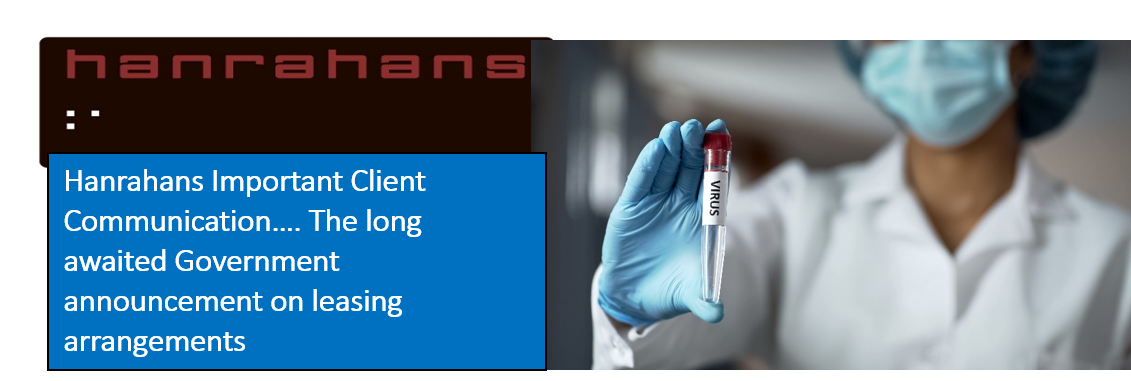The long awaited Government announcement on leasing arrangements

The SME Commercial Leasing Principles During COVID-19 appears to be very supportive of tenants (usually the business) throughout the period of the pandemic and includes a reasonable recovery period.
The term ‘reasonable recovery period’ is prominent in the document, outlining the government’s intention to support tenants for a fair period following this pandemic. There are also provisions to ensure that any agreed repayments are not onerous on tenants and can be stretched out to over 24 months – even if the lease has ended.
If you have less than $50 million in revenue and are eligible for the JobKeeper program, then the code should be applied to you as a tenant. The $50m turnover level will be applied to franchise groups at the franchisee level.
At this stage, how this ‘code’ is in fact going to be upheld in a legal sense is ambiguous, particularly given the paragraph that says ‘The Code will be given effect through relevant state and territory legislation or regulation as appropriate. The Code is not intended to supersede such legislation but aims to complement it during the COVID-19 crisis period.’
The code specifies that landlords are to ‘agree tailored, bespoke and appropriate temporary arrangements for each SME tenant’.
The key items of note in the Leasing Principles:
- Landlords cannot terminate the lease due to non-payment of rent during the period, but ALSO for a reasonable subsequent recovery period.
- Landlords must offer proportionate reductions in rent, of up to 100% of the amount payable – again refers to the pandemic period and also subsequent reasonable recovery period.
- Minimum rent reduction equivalent to the % proportion of the drop in the tenants revenue – the % rent reduction should be a minimum of 50% of the drop in turnover (our interpretation is that a 50% drop in turnover should receive minimum of 25% rent reduction) – note that the code of conduct refers to ‘reductions in rent’, not deferrals.
- If there is a deferral, the repayment (or catchup) of the deferred rent must be paid back over the GREATER period of minimum 24 months, OR the balance of the lease term. So minimum 24 months, perhaps more.
- Landlords must pass through any reduction in statutory charges (land tax, council rates or insurance proceeds)
- If repayments are required under a deferral arrangement, no repayment should commence until the earlier of the official Australian Government ending of the COVID-19 pandemic or the end of the lease – again, must take into account a subsequent recovery period.
- No fees, interest or other charges can be applied
- Security or Bond cannot be used to recover amounts owing
- Freeze on rental increases
Examples of practical variations reflecting the application of the principle of proportionality may include, but are not limited to:
- Qualifying tenants would be provided with cash flow relief in proportion to the loss of turnover they have experienced from the COVID-19 crisis
- a 60% loss in turnover would result in a guaranteed 60% cashflow relief.
- at a minimum, half is provided as rent free/rent waiver for the proportion of which the qualifying tenant’s revenue has fallen.
- up to half could be through a deferral of rent, with this to be recouped over at least 24 months in a manner that is negotiated by the parties
So if the tenant’s revenue has fallen by 100%, then at least 50% of total cash flow relief is rent free/rent waiver and the remainder is a rent deferral. If the qualifying tenant’s revenue has fallen by 30%, then at least 15% of total cashflow relief is rent free/rent waiver and the remainder is rent deferral.
Care should be taken to ensure that any repayment of the deferred rent does not compromise the ability of the affected SME tenant to recover from the crisis.
The parties would be free to make an alternative commercial arrangement to this formula if that is their wish.
This is a favourable outcome for tenants and business in general, adding to the ‘hibernation’ support provided by the Federal Government.
We will continue to keep you informed during the course of these trying times.
The material and contents provided in this publication are informative in nature only. It is not intended to be advice and you should not act specifically on the basis of this information alone. If expert assistance is required, professional advice should be obtained.
